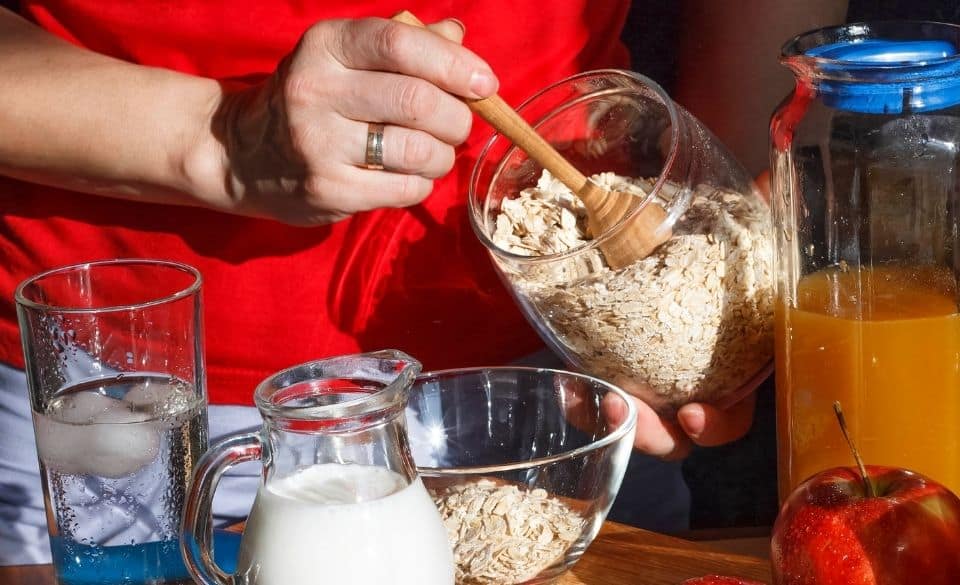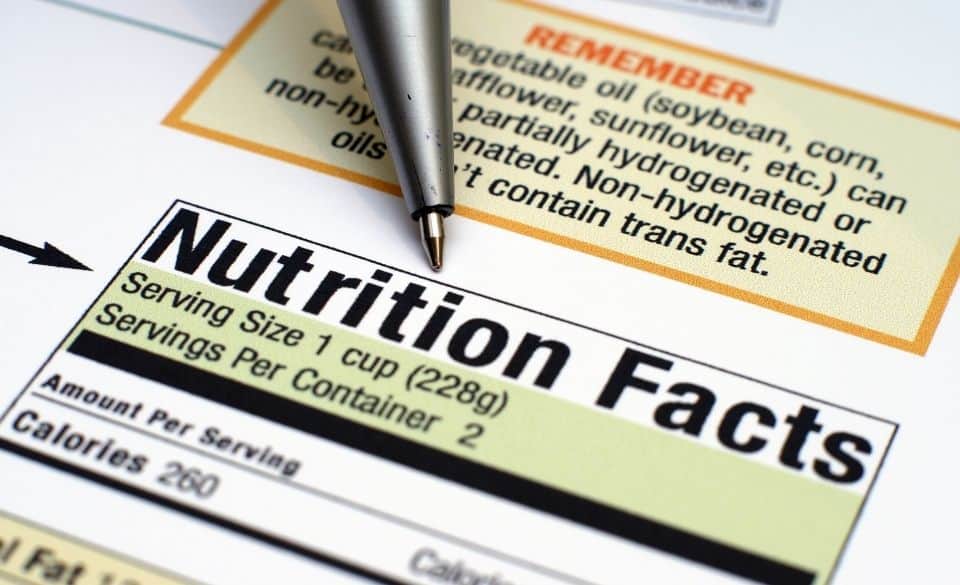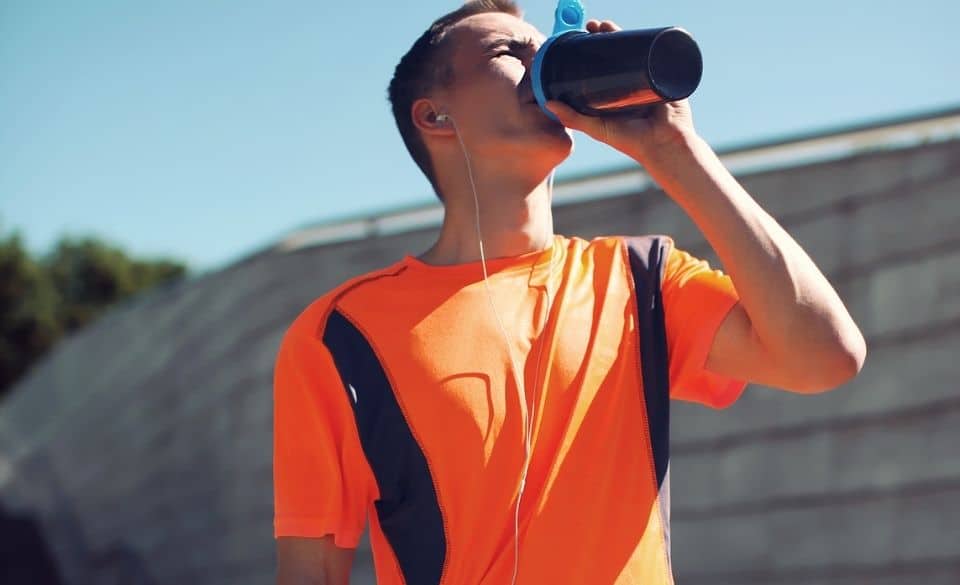
Duathlon Diet – A Complete Duathlon Training Diet Plan
Page Contents
Diet has been known to affect performance and recovery for years. So, if you are a dedicated runner and cyclist, your duathlon diet should be a key focus. Your diet should be based on your total energy expenditure from training and all daily activities. Some simple calculations can help you plan out the calories needed during and after training that can help improve your performance and recovery.
In this article, we teach you some basics of working out a simple duathlon diet plan.
Duathlon Diet – A Complete Guide
We all know that race day nutrition is one of the key factors in performance but what about your overall diet?
Having the right duathlon diet will generally make the biggest difference when it comes to health and performance. By focusing on your diet, you will maximize your training adaptations and recovery.
A nutritious duathlon diet doesn’t vary much from a triathlete’s one and it should follow in line with healthy eating recommendations as well. But as your training load increases, so should the energy intake. Remember during the off season the training load will decrease, so you should be limiting the amount of food during that period.
As an overall diet for duathlon, you should be focusing on eating high-quality meals. Meals and snacks should be from mostly whole foods, but it’s ok to enjoy treats occasionally. Just avoid trying to avoid overcompensating for your workouts (eating too much candy).
Try to maintain a healthy weight by not starving yourself. A lot of athletes think by doing this they will become lighter and therefore faster. The truth is if you become too light, your power to weight ratio will suffer, and you may not recover fully from the workouts.
As an athlete, it is important to monitor your macronutrients. Your carbs, protein, and fats serve an important purpose in a duathlete’s diet. Since there is no hard evidence on exactly how much each person needs, your genetics, and training will affect the balance of macronutrients needed.
Since carbohydrates are the body’s primary source of fuel, it should fill the largest percentage of macronutrients needed. Followed by protein, for muscle repair and fat for overall health. Try to explore the delicious benefits of diet cookies to obtain these nutrients while helping you attain your weight goals.
Duathlon Training Diet Plan
The right duathlon training diet plan can vary between people. The amount you train each week will determine the amount of fuel needed for both recovery and repair. But you should be aiming for 45-65% of calories coming from carbohydrates each day. For most people, this sits in the range of 3 to 12 grams of carbs per kg of body weight.
Since protein is the second most needed macronutrients in your diet, you should be aiming for 10-30% of your calories coming from protein. During long or intense training days, you may need to move towards the upper end of the percentage to promote faster recovery. Remember since the body can’t store protein, you should be consuming it throughout the day. You should also take in protein directly after training or within a two-hour window.
A good duathlon training diet plan should include the right amount of fat. Fat is important for nerve function and a great source of fatty acids. So remember to consume between 20-35% of your calorie intake each day from healthy fats.
Know you know some basic intake percentages, you need to put that into a duathlon training diet plan.
Start by calculating your energy needs in calories. This can be done by taking your weight in pounds. Then multiply it by 10 and the result will give you a basic intake needed per day. Add the average amount of calories burned for every minute of exercise to this and you will have the number of total calories needed. You can then break it into percentages to match how much fat, carbs, and protein will be needed.

Duathlon Nutrition – What You Should Know?
There are many diets around that promise to increase performance, but remember setting up the right duathlon nutrition plan is very individual. What works for one person most likely won’t work for another. Diets such as keto have been shown to help athletes burn more fat for fuel. But multiple studies have shown that there is no increase in performance. So the key is to find out what works best for you.
Though we have provided a good template to work from, this can vary from person to person. So just use it as a guide that you can fine-tune to suit your needs.
If you are looking to lose weight through a diet plan, try to limit the number of calories. Do this by eliminating 100-200 calories per day, spread across all your macronutrients. This way it won’t affect your recovery and the quality of your workouts.

Duathlon Race Day Diet
Your duathlon race day diet shouldn’t be much different from your daily training diet. The most important thing during your pre-race meal is not to introduce anything new into the body. But there as some changes needed for your pre-race meal. It should be large enough that it satisfies your stomach and help top up your energy stores without bloating you.
Make sure you take in easily digestible carbohydrates 2-3 hours before your multisport event. It has been proven countless times, that eating a high carb meal before exercise can improve performance. This meal should also contain small amounts of protein but don’t overdo it, protein intake is the focus after the race.
If you struggle with stomach or gastrointestinal problems during a race, make sure you limit the amount of fat in this meal. It is also wise to keep the fiber to a minimum, as this is a major cause of toilet stops during an event.
Important Considerations
Creating an effective duathlon diet plan involves recognizing individual variability considering each athlete’s unique preferences, tolerances, and responses to different foods. It is crucial to tailor carbohydrate intake based on the intensity and duration of training sessions, ensuring sufficient energy for optimal performance and recovery, especially on high-intensity days.
Balancing weight management goals with performance needs is critical, emphasizing the avoidance of extreme calorie restrictions that may compromise energy levels and hinder recovery. Additionally, maintaining consistency in distributing protein intake throughout the day and prioritizing post-training protein intake within two hours contributes to effective recovery strategies.
Adequate hydration is vital, with attention to individual sweat rates and electrolyte needs during training sessions. While dietary fiber is essential for overall health, limiting high-fiber foods before training or racing can help prevent gastrointestinal discomfort.
Prevent nutrient deficiencies by maintaining a well-balanced diet. Consider consulting with a nutritionist for personalized advice, and be open to experimenting with different food combinations to identify options that work best for digestion and sustained energy levels.
Avoiding introducing new foods on race day is prudent to prevent potential digestive issues. Testing race day nutrition strategies during training allows for identifying the most effective approach. Emphasizing the long-term sustainability of the diet plan and incorporating various nutrient-dense foods is paramount for overall health.
Regularly assessing training performance and recovery and adjusting the diet plan based on feedback contribute to sustained energy, improved performance, and long-term athletic success. Seeking guidance from sports nutritionists or dietitians and consulting with healthcare professionals for regular check-ins on overall health is recommended.



